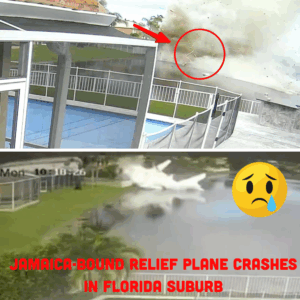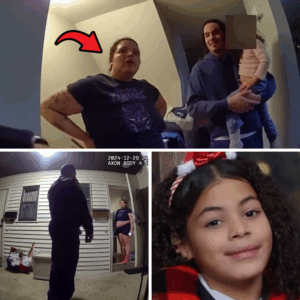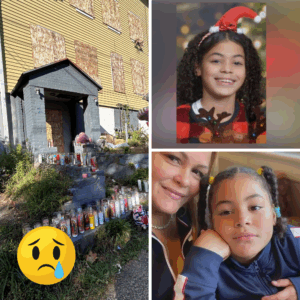In the sun-baked suburbs of Marana, Arizona, where the desert air shimmers like a mirage and summer temperatures turn asphalt into ovens, a father’s momentary lapse spiraled into unimaginable tragedy. On July 9, 2024, as a relentless heat wave scorched the region to 109 degrees Fahrenheit, 37-year-old Christopher Ryan Scholtes arrived home after a routine errand, his 2-year-old daughter Parker buckled asleep in her car seat in the back of their white SUV. What should have been a simple transfer indoors became a fatal delay. Scholtes, distracted by the pull of video games and household chores inside the family’s modest rental on Paytons Court, left the toddler unattended in the driveway for nearly three hours. By the time he remembered her, Parker was unresponsive, her tiny body ravaged by hyperthermia with a core temperature of 108.9 degrees. She was rushed to Banner University Medical Center but pronounced dead shortly after arrival, her death ruled a homicide by heat exposure. Scholtes’s arrest on second-degree murder and child abuse charges marked the beginning of a saga that would grip the nation, expose patterns of neglect, and culminate in his own suicide just days before sentencing on November 5, 2025. In the blistering crucible of Arizona’s summer, Parker’s story serves as a searing reminder of the silent killer lurking in every parked vehicle.
The afternoon of July 9 unfolded under a sky of unrelenting blue, the kind that promises paradise but delivers peril. Marana, a bedroom community northwest of Tucson in Pima County, was in the throes of a historic heat dome that had already claimed lives across the Southwest. Thermometers climbed past 100 degrees by noon, peaking at 109 by mid-afternoon, with car interiors capable of surging 40 to 50 degrees hotter in direct sunlight. Scholtes, a lifelong Arizona resident and father of three, had picked up Parker and her two siblings from daycare earlier that day. Court documents later revealed he pulled into the driveway around 2:30 p.m., the SUV’s engine humming softly with the air conditioning still running—a detail he would cling to in his initial defense.
“I didn’t want to wake her,” Scholtes told arriving paramedics and Marana police officers in bodycam footage that would later become public fodder for true-crime enthusiasts and heartbroken viewers alike. The video, grainy but gut-wrenching, captures the 6-foot-2, 250-pound father pacing the driveway, sweat beading on his forehead as he wrenches open the rear door. Parker’s limp form slumps in the car seat, her blond curls matted against flushed cheeks, skin hot to the touch. “She was sleeping so peacefully,” he stammered, his voice cracking as first responders assessed the scene. Neighbors, drawn by the wail of sirens slicing through the hazy heat, gathered at chain-link fences, murmuring in shock. One recalled hearing the distant hum of the idling engine earlier, mistaking it for a forgotten errand. Another, a retiree walking his dog, later told detectives he’d glanced at the vehicle around 3 p.m., assuming all was well in the shaded driveway edged by mesquite trees and saguaro cacti.
Inside the two-bedroom rental home, a different scene played out—one of oblivious domesticity. Scholtes, unemployed at the time and described by acquaintances as a “stay-at-home gamer dad,” settled into the living room with his PlayStation controller in hand. Prosecutors’ filings paint a damning portrait: browser history from his laptop showed searches for adult videos interspersed with gaming sessions, while he unpacked groceries and tended to his other children, ages 4 and 6. The older siblings, interviewed by child protective services in the chaotic aftermath, offered chilling insights. “Daddy leaves us in the car a lot,” the 6-year-old reportedly said, her words a child’s echo of routine risk. “He plays his games and forgets.” The 4-year-old nodded, adding that on this day, Scholtes had shooed them inside after snacks, promising Parker would join “after her nap.” It wasn’t the first time; court affidavits cite at least five prior instances in the preceding months where the children were left strapped in for 20 to 45 minutes during quick stops at stores or parks, always with the AC running—or so Scholtes claimed.
As the minutes ticked into hours, the SUV transformed from sanctuary to sauna. Forensic experts from the Pima County Medical Examiner’s Office reconstructed the timeline with ruthless precision: by 3:30 p.m., the interior hit 120 degrees; by 4 p.m., 130. Parker’s small body, clad in a lightweight sundress and sandals, couldn’t regulate against the onslaught. Hyperthermia sets in rapidly in toddlers—their higher metabolic rates and limited sweating capacity make them 3 to 5 times more vulnerable than adults. Symptoms cascade: heavy breathing, rapid heartbeat, then delirium, organ failure, and coma. The autopsy confirmed no underlying health issues; Parker’s death was pure environmental homicide, her brain swollen from the heat stroke that cooked her from the inside out. “The child suffered unimaginable agony in her final moments,” Pima County Attorney Laura Conover stated in a July 2024 press conference, her voice steady but eyes betraying the weight. “This was entirely preventable.”
Scholtes’s unraveling began almost immediately. As paramedics loaded Parker’s gurney into the ambulance, his phone buzzed with a text from his wife, Brittany Scholtes, who was at work as a medical assistant: “I told you to stop leaving them in the car. How many times have I told you?” His reply, frantic and fragmented: “Babe I’m sorry!” Brittany, 35 and the family’s emotional anchor, raced home from her shift at a nearby clinic, arriving to a swarm of yellow tape and flashing lights. In the days that followed, she cooperated fully with investigators, her interviews a mix of devastation and reluctant defense. “Chris loved the kids—he was just… scattered,” she told detectives, her words laced with the fog of grief. The couple, high school sweethearts married since 2012, had weathered financial strains—Scholtes’s intermittent construction gigs derailed by a back injury, Brittany’s overtime barely covering the $1,800 monthly rent. Their home, cluttered with toddler toys and gaming consoles, stood as a testament to aspirations unfulfilled: framed photos of family hikes in Saguaro National Park, now shadowed by tragedy.
The Marana Police Department’s investigation moved with swift, scorching efficiency. Detectives pored over neighborhood Ring cameras, capturing Scholtes’s arrival at 2:28 p.m. and his solitary entry into the house. No footage showed him returning until 5:10 p.m., when a neighbor’s motion-sensor light flickered on as he bolted out, screaming for help. Cellphone data corroborated: continuous Wi-Fi connection to the home router, punctuated by gaming app pings. A search warrant on the family laptop unearthed the adult content tabs—minimized but not closed—alongside a half-eaten bag of chips on the coffee table. Brittany, in a tearful affidavit, confirmed the pattern: “He’d get lost in his games, especially when stressed about money. I’d come home and find the kids waiting in the car, windows cracked, but safe. This time… it went too far.” Child Protective Services swooped in, placing the surviving siblings with Brittany’s sister in Tucson, where they’ve since thrived in counseling and a stable routine.

Scholtes’s arrest on July 12, 2024, unfolded quietly at the Pima County Jail, his orange jumpsuit dwarfing his slumped frame. Charged with second-degree murder—a felony carrying 7 to 21 years—and two counts of child abuse under $25,000 bond, he initially maintained innocence, blaming a “perfect storm” of heat and oversight. Pretrial maneuvers dragged into 2025: in May, a judge approved a family vacation to Hawaii—supervised, with no unsupervised child contact—allowing Scholtes a final respite with Brittany and the kids on Waikiki beaches, a bittersweet echo of Arizona’s lost summers. He rejected an early plea deal for 10 to 25 years, gambling on trial in hopes of leniency. But as evidence mounted—expert testimony on vehicular heat dynamics, sibling statements painting a portrait of chronic neglect—the walls closed in.
October 2025 brought the pivot: Scholtes, hollow-eyed in court videos, accepted a plea bargain on October 24, pleading guilty to second-degree murder and one child abuse count. The deal capped his sentence at 30 years, with 15 years flat time before parole eligibility, plus lifetime probation. “I failed her in the worst way,” he whispered during the hearing, his voice barely audible over the gasps from Parker’s maternal grandparents in the gallery. Sentencing was set for November 21, a date circled in red on the family’s calendar. Conover hailed it as justice tempered by mercy: “This acknowledges the profound loss while allowing for rehabilitation—if possible.” Brittany, clutching a stuffed unicorn—Parker’s favorite—declined comment, her silence a shield against the media glare.
Dawn on November 5 shattered the fragile peace. At 5:22 a.m., Phoenix police responded to a welfare check at a nondescript rental near 7th Street and Northern Avenue, a 90-minute drive from Marana. Neighbors reported muffled cries the night before; inside, they found Scholtes, 38, deceased from an apparent self-inflicted gunshot wound to the head. A Glock 19 lay beside him, legally purchased two years prior. No note, but his phone’s last search at 2:17 a.m.: “How to face prison for killing your child.” The discovery, mere hours before a routine pretrial hearing, stunned investigators. “He couldn’t bear the guilt,” Marana Police Chief Kevin Doll said in a somber briefing, flanked by grief counselors. Brittany, notified mid-commute, collapsed at the station, her wails echoing through the halls. The surviving children, now 5 and 7, learned via age-appropriate talks with therapists, their drawings of “angel Parker” a child’s balm for irreparable wounds.
Scholtes’s suicide ripples beyond the courtroom, igniting debates on accountability and prevention. Hot car deaths, tragically commonplace, claim about 37 children annually in the U.S., per KidsAndCars.org—over half from “forgotten baby” scenarios like Parker’s. Arizona, with its brutal summers, ranks high: 2024 saw a 20% spike amid record heat. Advocates decry lax laws—no mandatory rear-seat reminders in new vehicles until 2025 models—and push for “Look Before You Lock” campaigns in schools and daycares. In Marana, a ghost bike memorial now graces Paytons Court: a child-sized tricycle draped in sunflowers, inscribed with “Parker: Too Hot to Handle, Too Precious to Forget.” Brittany, emerging from seclusion, has become a reluctant voice, partnering with NoHeatStroke.org for awareness drives. “She was my sparkler in the desert,” she shared at a October vigil, 200 locals gathered under string lights. “Chris’s choice haunts us, but Parker’s light endures.”
As November’s chill tempers Arizona’s furnace, the Scholtes home stands vacant, a For Rent sign swaying in the breeze. The case, once a flashpoint for parental negligence, now layers tragedy upon tragedy: a father’s fatal distraction, a daughter’s stolen breaths, a family’s fractured forever. Experts ponder the “why”—was it addiction to escapism, untreated depression, or the numbing grind of poverty? No single villain, but a confluence of cracks. For Parker Scholtes, whose laughter once chased tumbleweeds across playgrounds, her story demands vigilance: crack a window, set an alarm, glance back. In the unforgiving blaze of the Sonoran Desert, one forgotten moment can eclipse a lifetime. May her memory cool the heat of haste, a tiny footprint in the sands of prevention





